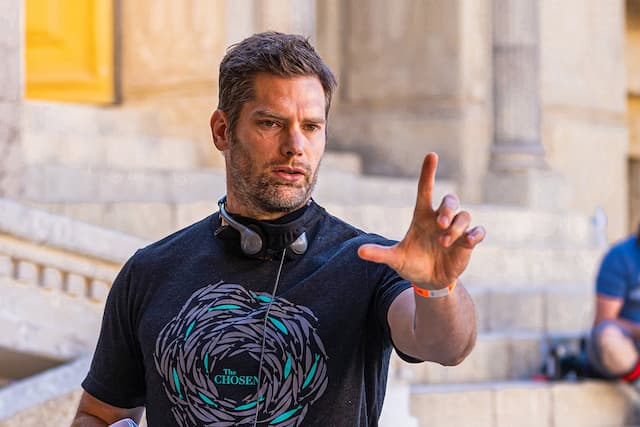Is God's Love Really Unconditional?
It is commonly taught in churches, no matter what denomination or theological persuasion, that God loves us with an unconditional love. This is said so frequently, and with such assurance, we accept it as being true. But this supposed truism isn’t true; and one need not be a theological scholar to know it isn’t true. There are conditions! Always have been!
Were we to focus on God’s love from the perspective of eternity past, we would certainly find support for God unilaterally purposing to love man, despite the sin problems that would later occur. Yet, even the salvation plan conceived before history involved conditions.
The first condition was this: If we place our belief in God and trust Jesus as our Lord and Savior, Heaven is assured; and if we don’t, hell is assured. Of course, hell wouldn’t exist if unconditional love were true.
Some may imagine that when those who refused this condition then go to hell, a grieving God will look on with weeping agony. But that would only be their imagination; Scripture gives a different report. II Thessalonians 1:7, 8 puts it this way, “... the Lord Jesus is revealed from heaven with His mighty angels, in flaming fire taking vengeance on those who do not know God ....”
According to Scripture, Jesus is as resolute as a warrior! He isn’t conflicted in the slightest! To offend a holy God, reject his offer to save, snicker at any mention of hell, is to incur his deserved and devastating wrath. So how, I wonder, does the idea of God’s unconditional love survive what Scripture actually says? At the very core of God’s being, his unchangeable holiness, is another reality.
Throughout the Old Testament, God formed relationship with his people on the basis of a covenant. The stated purpose of each covenant was: “I will be their God, and they shall be My people” (Jeremiah 31:33). Accompanying each covenant were benefits, yes, but also c0nditions—conditions for getting these benefits.
Even when all these covenants failed, as each of them did, God still didn’t scrap the covenant idea. And that’s because the problem was never the covenant; the heart of the human problem was the problem with the human heart. Man didn’t have the heart to keep a covenant! So God changed that, not the need for a covenant. And he did so by giving us a new heart and spirit (Ezekiel 36:26, 27), what the New Testament called the new creation (II Corinthians 5:17).
Andrea Crouch wrote the song, “I Don’t Know Why Jesus Loved Me.” And millions there are today who wonder the same thing. People who think that way, though, have a hard time receiving this love, and you can understand why. It’s because what they see within just isn’t all that loveable.
Actually, the better answer to the Andrea Crouch question is: The Lord loves what he gave; and what he gave was a new nature—his nature, created in true righteousness and holiness (Ephesians 4:24). Once we understand that this new nature totally defines who we really are, then the Lord’s love for us is more easily understood, and more easily received.
Again, God’s love was based on a condition: reception of a new nature. Jesus first words to Nicodemus were, “You must be born again.” Jesus said it first because he couldn’t do much for Nicodemus, or for anyone else, until this new nature is received.
With the new nature, we know, came a new covenant, what we call the New Testament. And were there conditions in this covenant? Yes, there were; multiple conditions, each of these determining the extent we would experience God’s love. For example, Jesus said, “You are my friends if you do what I command you” (John 15:14). And if you don’t? Then, for as long as you don’t, friendship with Jesus is forfeited. True, your relationship with him isn’t forfeited, but something very precious is—the love dynamics of an ongoing friendship.
Over and over again Jesus said, “If you have faith ….” “If you do what I command you ….” “If you love me ….” “If you ask anything ….” “If you can believe ….” On and on it goes: if, if, if! Dr. R.G. Lee observed:
What royal roads “if” opens up for us to travel. And what palace doors “if” throws open wide. And what treasure chests “if” unlocks. And what light “if” radiates … And what unknown continents “if” discovers. And what glorious affirmations “if” declares.
Jesus said, “If any man hear my voice ….” “If any man serve me ….” “If any man keep my saying ….” “If any man would follow me ….” It all hinges on that one little word, “if.” And note well: Every “if” is a condition. Indeed, it is at the crossroads where “if” is located that the direction of one’s life is determined.
While it is true that God is omnipotent, he, nevertheless, has put a big “if” in your life and mine—several “ifs,” in fact. Therefore, the life we live, and the love of God we actually experience, is going to be determined by how we respond to these “ifs.”
John 12:26 says if we will follow and serve Jesus, God will honor us. But if we don’t meet that condition, then we won’t experience the level of love that comes when God honors us.
Luke 9, verses 23 and 24, say that if we will follow Jesus and take up our cross, we will experience the abundant life God intends for us on earth. But if we choose a “crossless” Christianity, as many do, then we will severely limit our experience of the abundance of God’s love.
Matthew 21:22 records Jesus saying that if we extend faith when we ask in prayers, we will experience answered prayers. Omit complying with this condition, though, and the results will be substantially less. Mark 9:23 said much the same thing: If you can believe, all things are possible. So, obviously, the more limited the belief, the more limited the results. And the more limited the results, the more reduced one’s experience of God’s love.
Life changes dramatically when an “if” becomes a “done.” Given this scripturally-supported fact, the idea of God’s unconditional love is very misleading, to say the least. To defend it requires the death of a thousand qualifications.
Truth would be better served if we would quit talking about God’s unconditional love and emphasized instead his abounding grace. God’s grace, if secured by faith (another if), is sufficient to meet each condition prerequisite for accessing the higher levels of his love.
Dr. J.W. Phillips is the author of more than twenty books, including those in omegaadvanceddiscipleship.com











